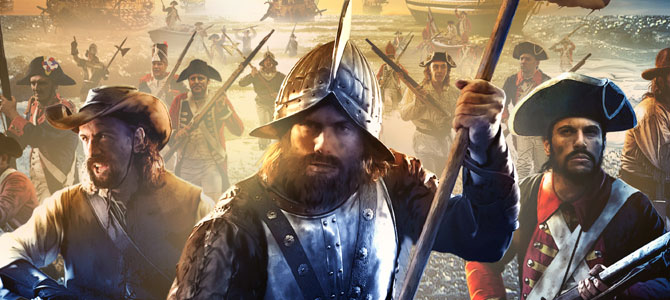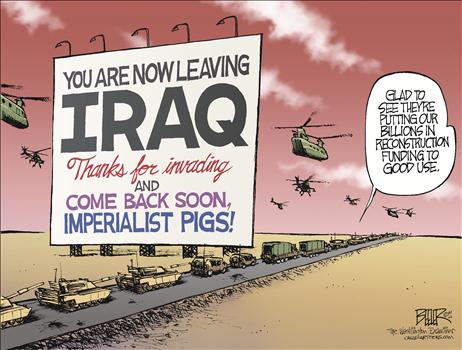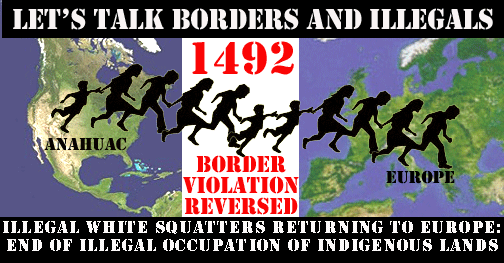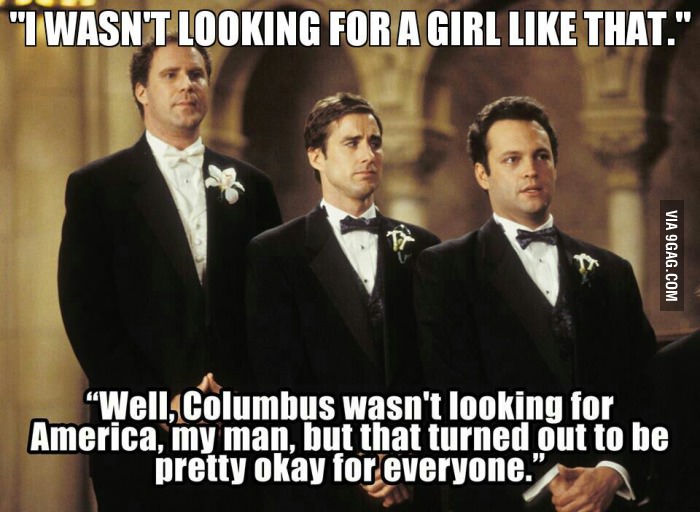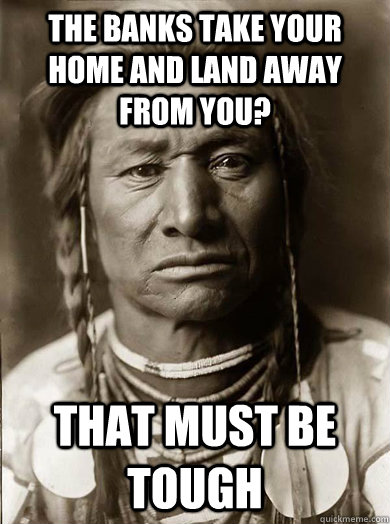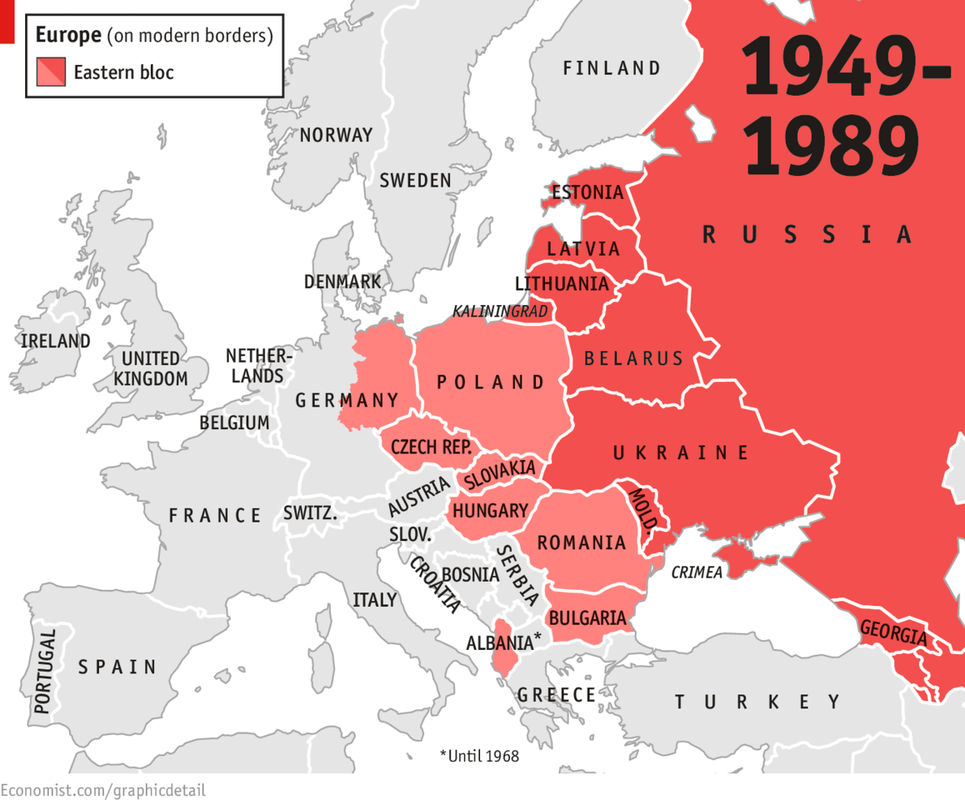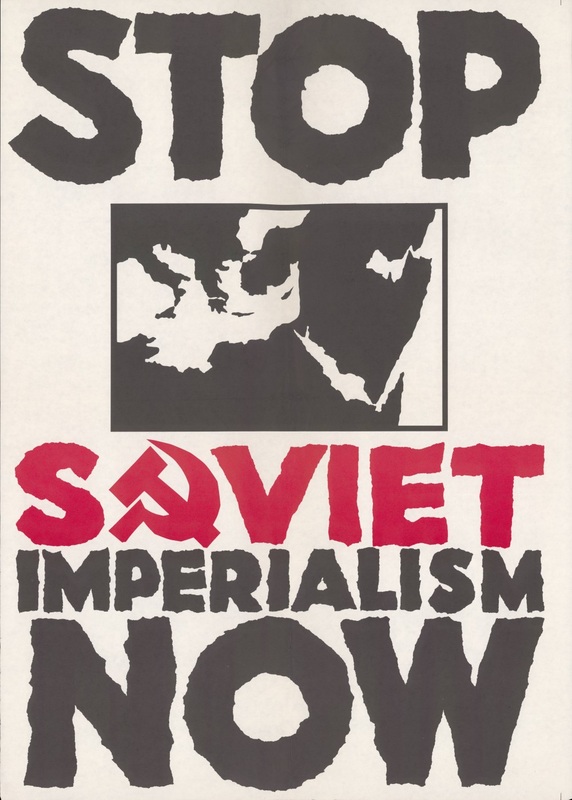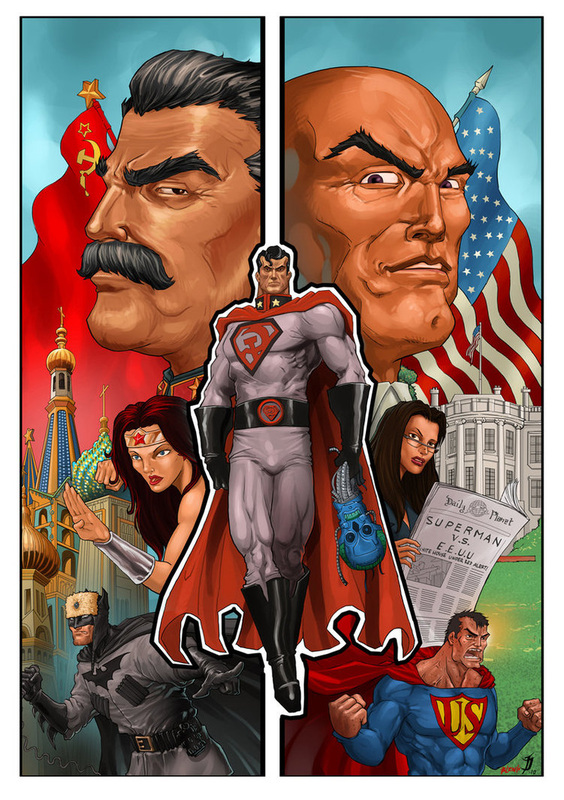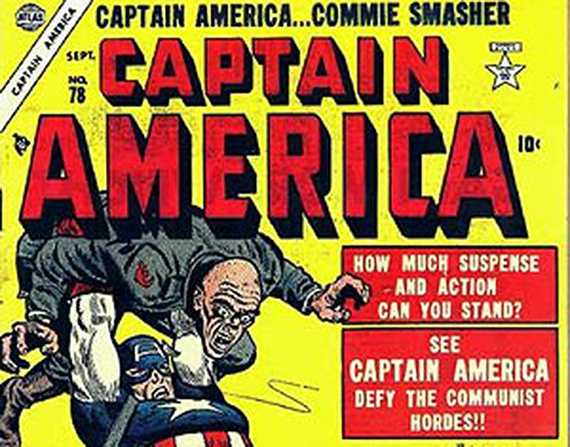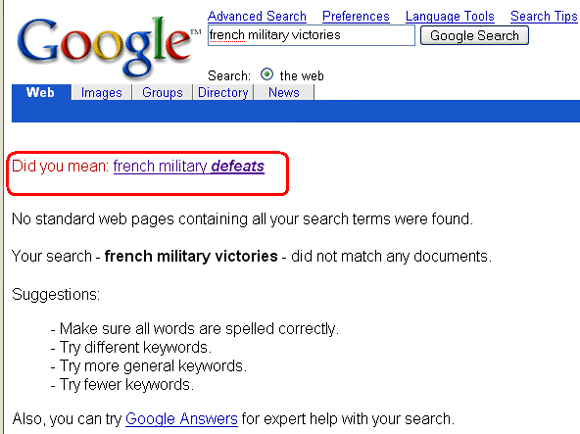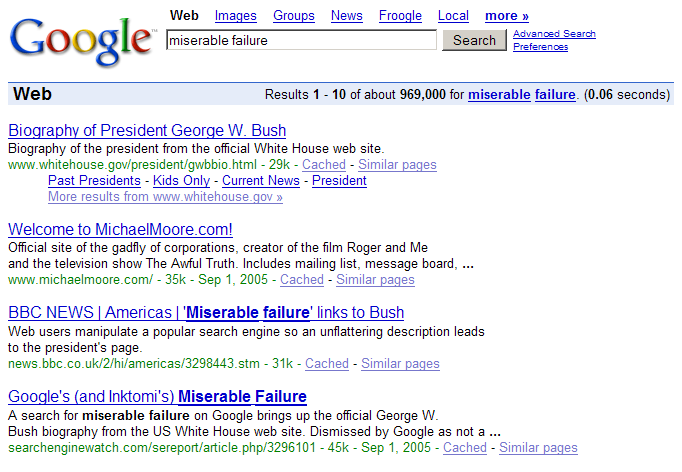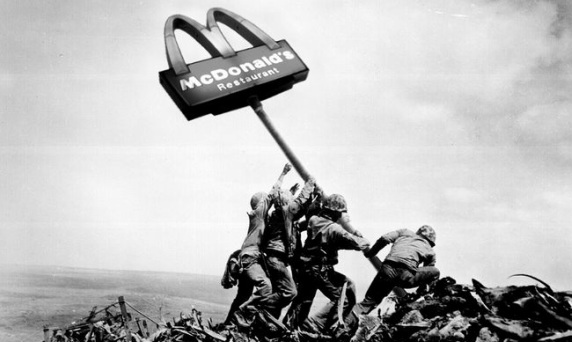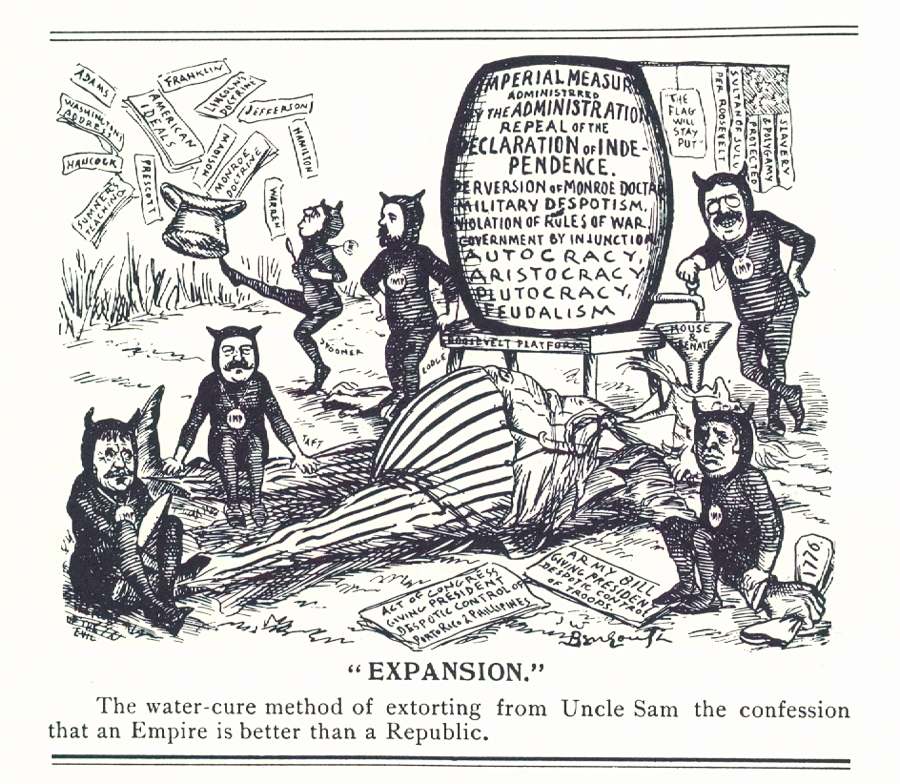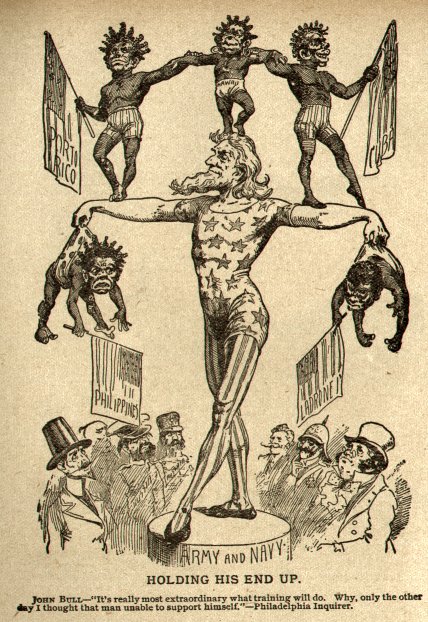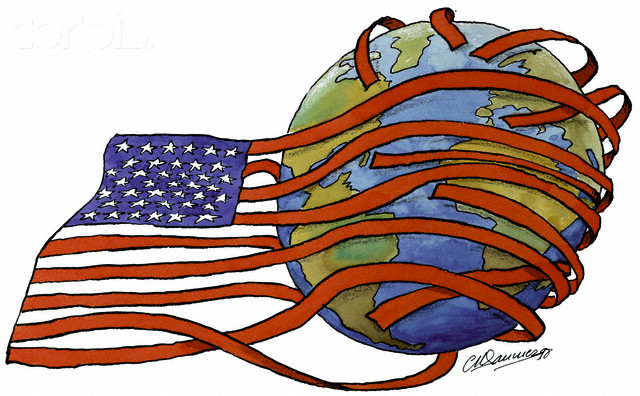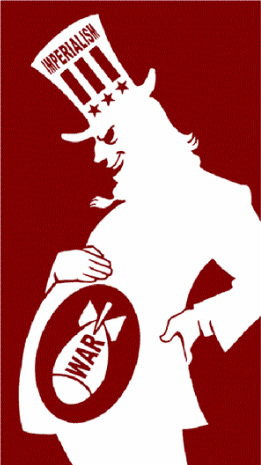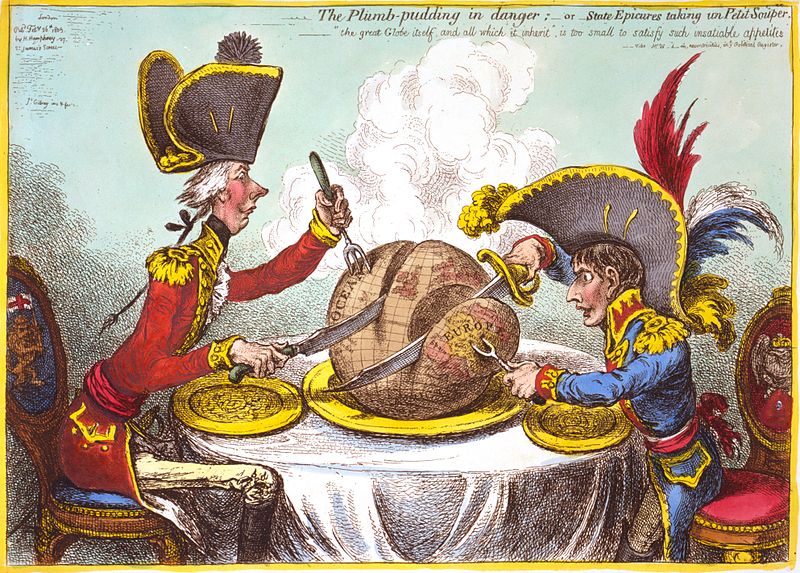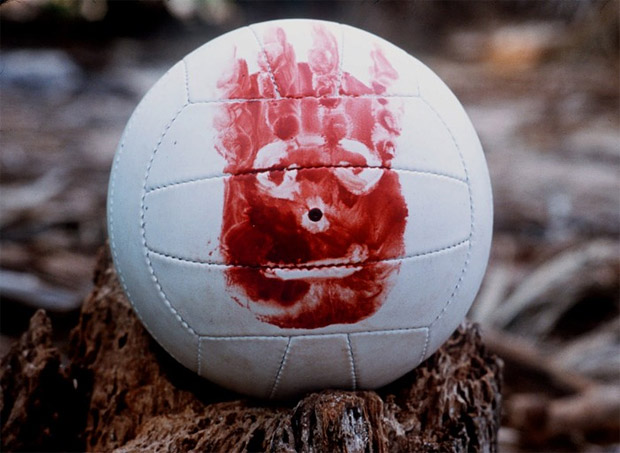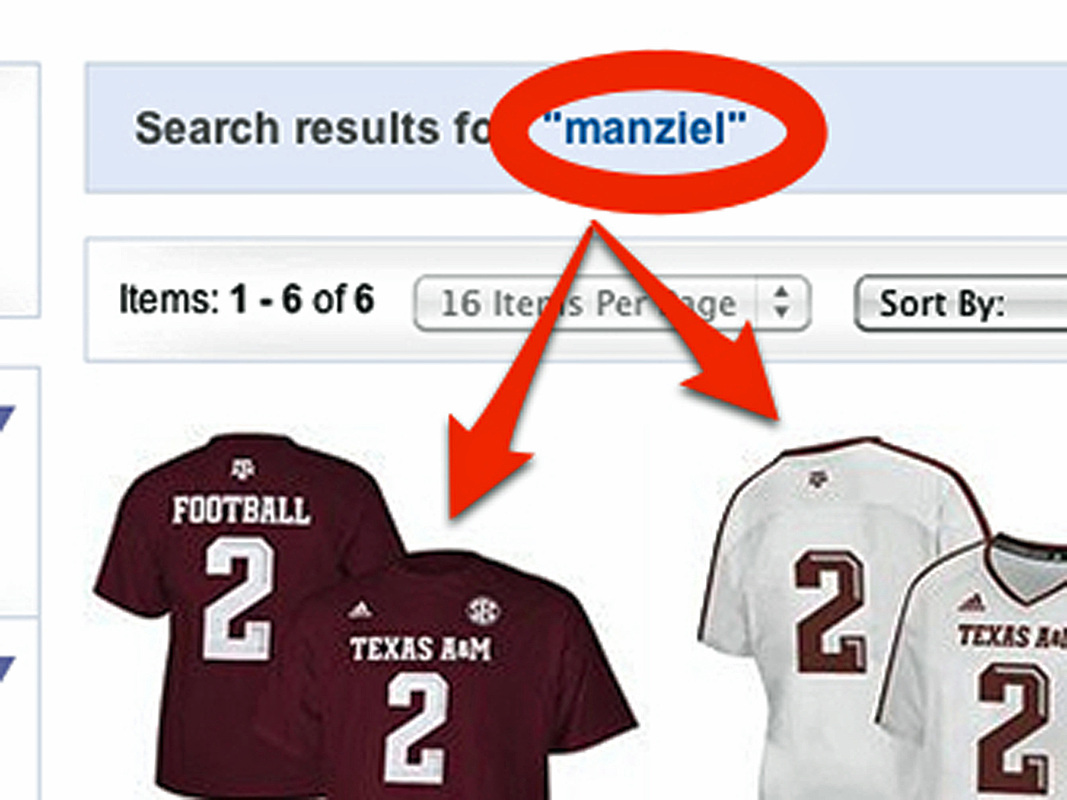Scramblin' thru... the Age of Imperialism
In 1492...

Remember Christmas morning when you were 10? You know, the one when you got a sweater. Again. And your friend got the XBox. Sure you should be happy with what you got. There are those that woke up, rushed downstairs, and found "Santa" passed out under the tree. Again. Alas, it seems nobody is content with what they've got. We always want what others have. But don't feel bad. You're not alone. Since ancient times, countries have built empires by conquering other lands. They saw something they liked... and, rather than wait for yet another disappointing holiday season... they went out and took it.
Two terms are used when discussing such expansion: colonialism and imperialism. They sound the same, and people often use them interchangeably. (Although they shouldn't. The number of fights that Dr. Hartnell has had to break up when one kid uses "colonialism" when he really meant to say "imperialism"...) However, they are different. Very different. The difference comes in the type of control put over the desired country. Both colonialism and imperialism result in powerful nations extending control or influence over weaker nations. As is often the case, militaries get involved.
Colonialism is where more formal or complete control is placed on an area. It often involves territorial annexation and the loss of sovereignty (power to govern oneself). The 13 American colonies run by Britain in the 1700s were perfect examples of territorial annexation, loss of sovereignty, and complete control.
Imperialism refers to an influence that is informal or indirect. The role the U.S. played in Iraq during the 2003 war is a good example of that. At no point in time did the U.S. hope to make Iraq the 51st state. (Can you imagine? And you thought map makers hated Alaska and Hawaii!) The U.S. also did not wish to remain in Iraq permanently. (Seriously. The U.S. really didn't wish to remain there.) Still, by being present in Iraq, the U.S. introduced "democracy" and an outside culture that inadvertently influenced Iraq. (FYI... after the arrival of U.S. troops in 2003, pornography usage increased 200% in Iraq! U.S.A.! U.S.A.! U.S.A.!)
Two terms are used when discussing such expansion: colonialism and imperialism. They sound the same, and people often use them interchangeably. (Although they shouldn't. The number of fights that Dr. Hartnell has had to break up when one kid uses "colonialism" when he really meant to say "imperialism"...) However, they are different. Very different. The difference comes in the type of control put over the desired country. Both colonialism and imperialism result in powerful nations extending control or influence over weaker nations. As is often the case, militaries get involved.
Colonialism is where more formal or complete control is placed on an area. It often involves territorial annexation and the loss of sovereignty (power to govern oneself). The 13 American colonies run by Britain in the 1700s were perfect examples of territorial annexation, loss of sovereignty, and complete control.
Imperialism refers to an influence that is informal or indirect. The role the U.S. played in Iraq during the 2003 war is a good example of that. At no point in time did the U.S. hope to make Iraq the 51st state. (Can you imagine? And you thought map makers hated Alaska and Hawaii!) The U.S. also did not wish to remain in Iraq permanently. (Seriously. The U.S. really didn't wish to remain there.) Still, by being present in Iraq, the U.S. introduced "democracy" and an outside culture that inadvertently influenced Iraq. (FYI... after the arrival of U.S. troops in 2003, pornography usage increased 200% in Iraq! U.S.A.! U.S.A.! U.S.A.!)
R.I.P.E.
Historically, strong countries dominated weaker ones to promote their own national self-interest... and so they could sit at the "cool kids' table". After Columbus arrived in the "New World" and started coughing on the locals, European countries began creating massive overseas empires. With the independence of the Americas in the late 1700s and early 1800s, European imperialism was dealt a big blow. But, true to that European "never-say-never" gusto, it never died out. It continued in Asia, Africa, India, and elsewhere. And this meant the older powers like Britain and France didn't go away... they pulled a Brett Favre and continued to grow. Then along came America. And nobody does imperialism quite like the nation that invented the "Dollar Menu"...
The 4 causes of imperialism are: Reactive, Ideological, Power, and Economic. (To help remember this, think "the world is RIPE for the taking".)
The 4 causes of imperialism are: Reactive, Ideological, Power, and Economic. (To help remember this, think "the world is RIPE for the taking".)
Reactive Imperialism
Just like with "peer pressure", countries become imperialistic "because everyone else is doing it". (And you thought your Mom didn't let you have any fun...) Sometimes countries conquer those next to them to create a "buffer zone" in order to protect their own borders. Having countries that are "friendly" to your own provides you with the opportunity to drop off a battalion or two of troops and hang out there for awhile, effectively turning that nation into a de facto military base for your mother country. (Wink, wink... just don't let the locals find out!)
Ex: After being invaded from the west during WWII, the Soviet Union expanded into Eastern Europe to protect its borders. This was reactive imperialism. And who doesn't love having Soviets stop by... for decades at a time?
Ex: After being invaded from the west during WWII, the Soviet Union expanded into Eastern Europe to protect its borders. This was reactive imperialism. And who doesn't love having Soviets stop by... for decades at a time?
Ideological Imperialism
This is the most controversial cause of imperialism because it is based on one country's "ideas". When these ideas include government (political), culture, and religion, there is often open resistance. Social Darwinism and the "White Man's Burden" are two examples of ideological imperialism gone very, very, very wrong.
Ex: The desire of the U.S. to protect democracy from Communism (1945-1991) and terrorism (after 2001) is ideological imperialism.
Ex: The desire of the U.S. to protect democracy from Communism (1945-1991) and terrorism (after 2001) is ideological imperialism.
Power Imperialism
Countries often expand for power and prestige. This is done to demonstrate the strength of a country, help restore its reputation after a defeat, or to build up its "street cred". (And after his last album dropped, Dr. Hartnell knows a thing or two about street cred.) Essentially, it can become a glorified peeing contest.
Ex: France picked "winnable" fights with weaker countries in the late 1800s to restore its reputation after losing the Franco-Prussian War (1870-1871). This was power imperialism. And yes, France used to win wars. Of course, Google hackers found a way to have some fun with France's military track record! [See below for how.]
Ex: France picked "winnable" fights with weaker countries in the late 1800s to restore its reputation after losing the Franco-Prussian War (1870-1871). This was power imperialism. And yes, France used to win wars. Of course, Google hackers found a way to have some fun with France's military track record! [See below for how.]
Economic Imperialism
This is the most common (and desired) cause of imperialism. It is done to expand economies, get raw materials, gain sources of labor, or find new markets for surplus goods. It is often linked with capitalism, which is a system where private money or goods are used to make a profit.
Ex: After WWII, the expansion of the U.S. into Third World countries to bolster the economy is economic imperialism.
Ex: After WWII, the expansion of the U.S. into Third World countries to bolster the economy is economic imperialism.
Impact of Imperialism
Imperialism can have important political, social, and economic impacts on the lands involved. However, while it often brings countries into the "modern world", it does so at a huge cost. (I know, this is the total "buzz kill" part of imperialistic fun...)
|
1. Language:
Europeans introduced their own languages to India, Africa, and the Pacific, making their languages the accepted means of communication. The colonizers typically ignored local languages and customs, which they saw as inferior. 2. Natural Resources: European colonizers believed they owned the territories they occupied and felt they had a right to take what they wanted. Africa lost its gold and diamonds because of this. 3. Labor: The native people were forced to work on European plantations, in their mines, etc. They were treated as inferior and forced to work long hours for little pay. 4. Political Authority: European nations created new colonial boundaries based on arrangements reached with other powers, ignoring tribal and ethnic boundaries. If problems persisted, local rulers were replaced with colonial authorities. 5. Religion: Europeans believed they were improving the lives of colonial people by bringing them Christianity and the "advanced" ideas of European civilization. 6. Technology: Europeans introduced railroads, telegraphs, and modern medicines to colonial areas, bringing these regions into the "modern world". |
|
|
Speaking of colonialism, there were 3 types of colonies:
(a) colonies of settlement (b) colonies of exploitation (c) contested-settlement colonies With colonies of settlement, settlers took complete control, stayed permanently, treated natives harshly, and kept in touch with Mom. (You know, like living in a college town.) With colonies of exploitation, settlers didn't stay long since they just came for natural resources, labor, etc. (In other words, they went all "Lorax" on the place. Damn Thneeds...) Because they wanted to one day return, the settlers treated the Natives well (or, at least, whatever being treated "well" by Europeans in the 1600s meant). With contested-settlement colonies, the settlers stayed permanently but did not keep in touch with Mom. They created new governments ('cuz, you know, they know everything) but later faced resistance by the natives. |
|

